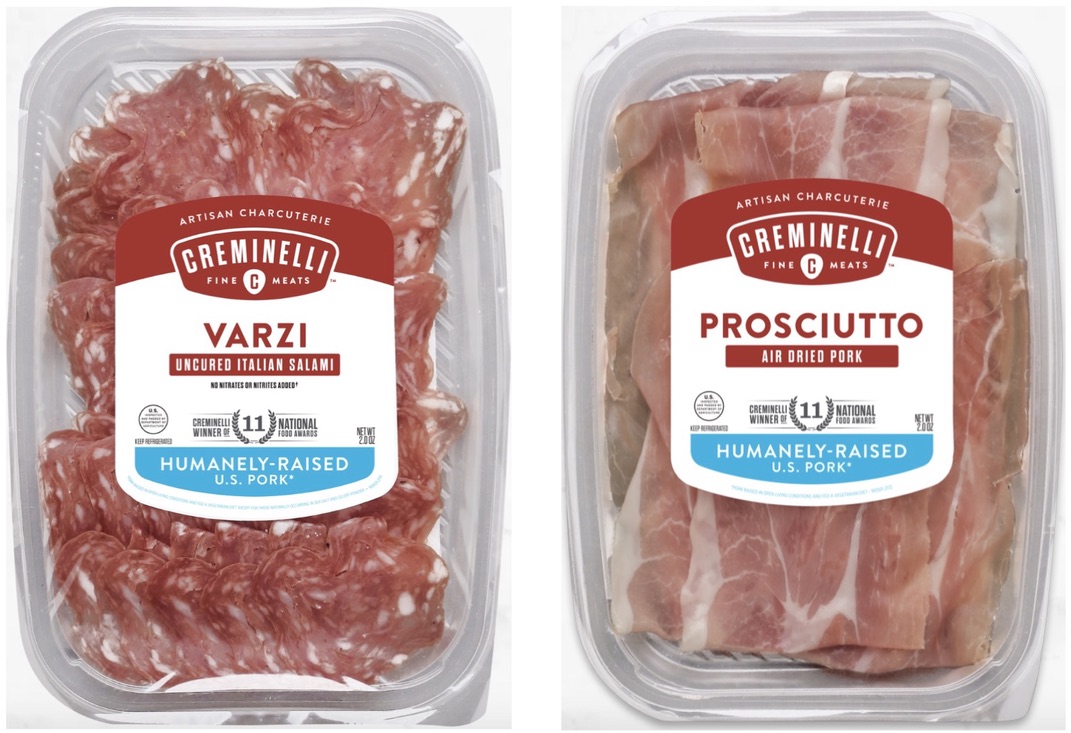It’s time for more recommendations on better choices for snacks at your Super Bowl Party. I’ve previously discussed my picks for cheese and crackers. Now it’s time to get to the “Omnivore” part of The Appropriate Omnivore. If I’ve got crackers, I’m not only going to top them with cheese. Of course, I want some good cold cuts to put on them as well.
Cold cuts are meats cured using age old traditions. With the industrialization of food, both the meats and the way they’re cured have become denatured. Meat producers began looking for shortcuts. Processors added in nitrates, which have negative health effects. At the same time, farmers started raising livestock and growing crops on separate land. So lunch meats were often sourced from factory farms. Currently, so many sandwich meats are made from feedlot animals given feeds filled with pesticides and GMOs.
While the majority of cold cuts come from unsustainable sources, there are a handful of companies dedicated to finding farms with animals raised in humane conditions for them to produce their lunch meats. And all of them continue to expand the type of deli meats to include more options.
In alphabetical order, here are the 15 best sustainably sourced deli meats:
Applegate
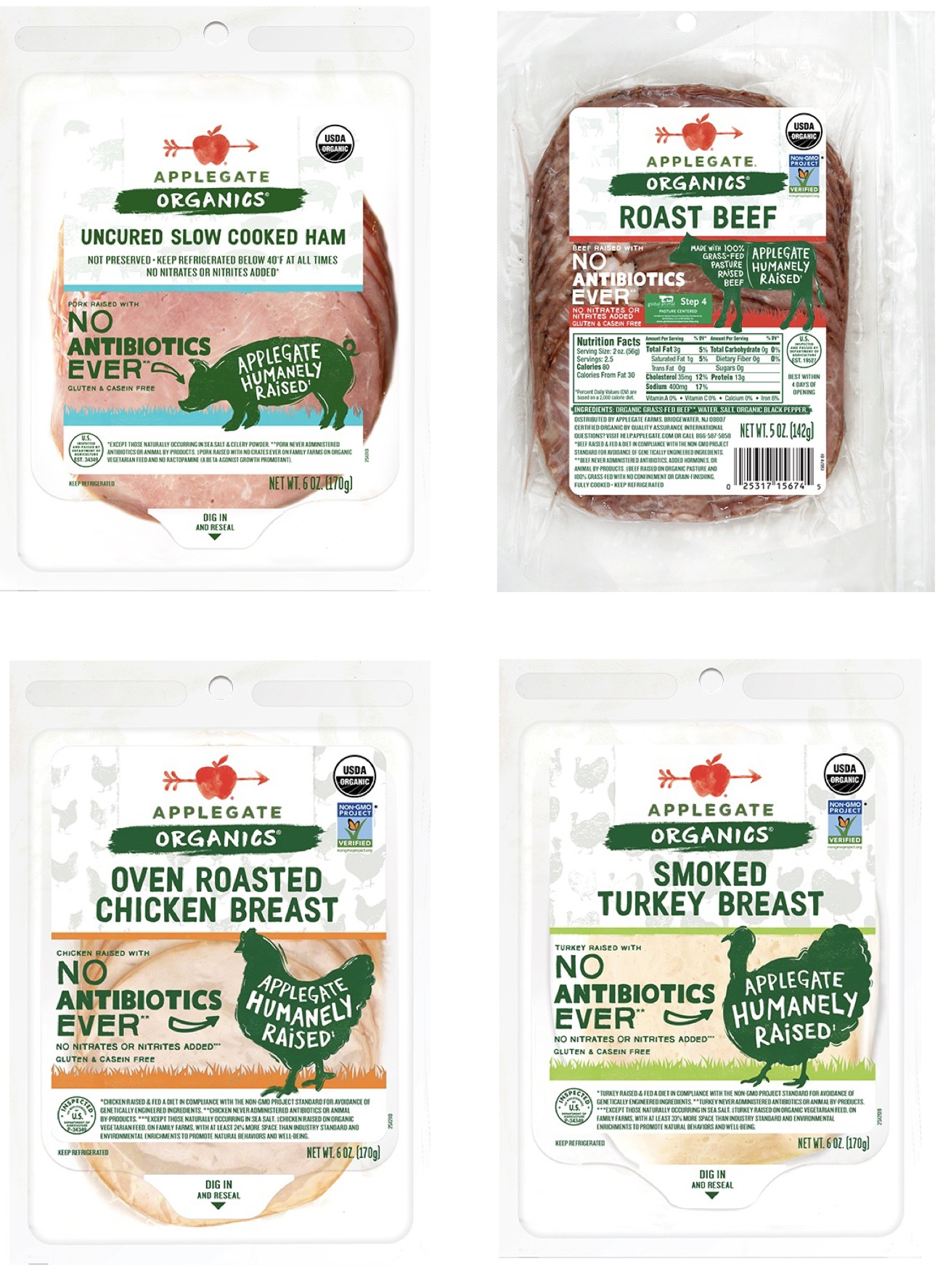 In 1987, Stephen McDonnell and his friend Christopher Ely bought Chris’ family business Jugtown Smokehouse, which produced smoked meats without any synthetic nitrates. Stephen started Applegate with the purpose of asking “what if you weren’t afraid to read a hot dog ingredient label?” Next they made deli meat which was antibiotic free, followed by introducing the first widely distributed deli meat with an organic certification. In 2015, all of their beef products became 100% grass fed. In addition to their grass fed roast beef and pepperoni, Applegate has organic deli slices of salami, ham, chicken, and turkey.
In 1987, Stephen McDonnell and his friend Christopher Ely bought Chris’ family business Jugtown Smokehouse, which produced smoked meats without any synthetic nitrates. Stephen started Applegate with the purpose of asking “what if you weren’t afraid to read a hot dog ingredient label?” Next they made deli meat which was antibiotic free, followed by introducing the first widely distributed deli meat with an organic certification. In 2015, all of their beef products became 100% grass fed. In addition to their grass fed roast beef and pepperoni, Applegate has organic deli slices of salami, ham, chicken, and turkey.
Brooklyn Cured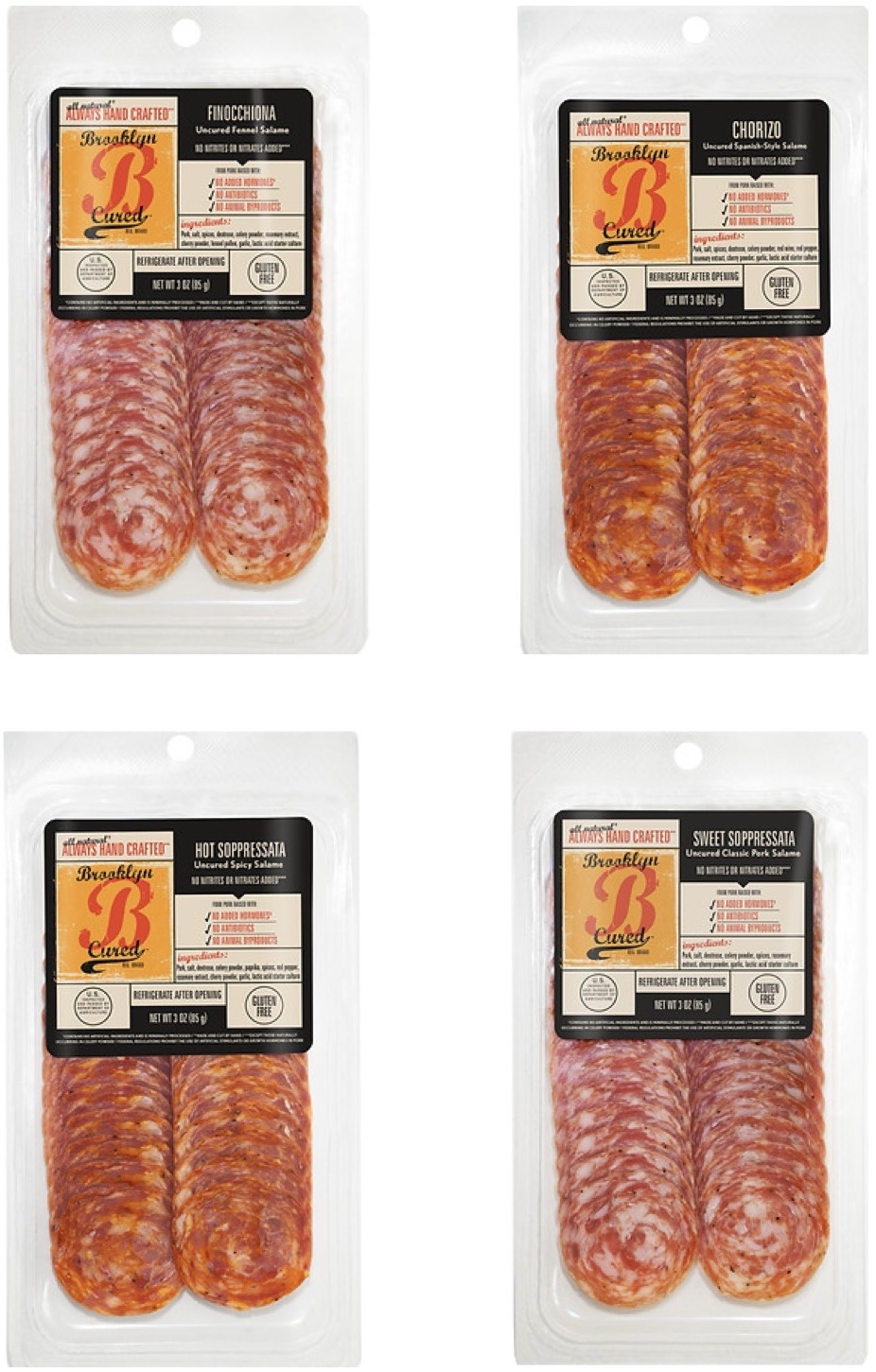
Brooklyn Cured founder Scott Bridi is a Brooklyn native who has spent over 15 years as a chef, butcher, culinary instructor, and charcuterie producer. In 2010, he founded Brooklyn Cured with the mission to create a larger market for sustainably raised meat. He sources heritage meats from farmers engaged in regenerative agriculture practices. Brooklyn Cured also supports local and national food banks hunger-reliefs organizations. Brooklyn Cured’s pre-slice charcuterie products are divided into their pork options of various types of salamis and their beef options of a couple types of salami as well as bresaola.
Coro Foods
For over twenty years, Coro Foods has been around posing new points of views and voices to the deli meat industry. Coro means chorus in Italian. The name was chosen both to describe the chorus of non-traditional flavors in their meats and the chorus of voices at Coro that unite to create the meats. Coro goes for clean, all natural ingredients. They pride themselves in their cured meats being free of low-grade meat, fillers, dextrose, hormones, and antibiotics. The animals are all treated humanely. Among Coro Foods’ unique flavors of salami are mole, lemongrass, mustard, and orange cardamon. Coro also have a classic pepperoni.
Creminelli
The Creminelli family comes from Biella, Italy, where they ‘ve been making artisan salami for centuries. Cristiano Creminelli began running the production for their salami when he was 25, earning his family an official recognition by Italy’s cultural ministry as Artisans of Excellence. In 2006, Cristiano moved to Utah to form Creminelli Fine Meats with business partners Chris Bowler and Jared Lynch and introduce the United States to his family’s artisanally cured charcuterie. Creminelli offers a diverse variety of salamis, including genoa, sopressata, calabrese, and varzi, along with prosciutto.
Diestel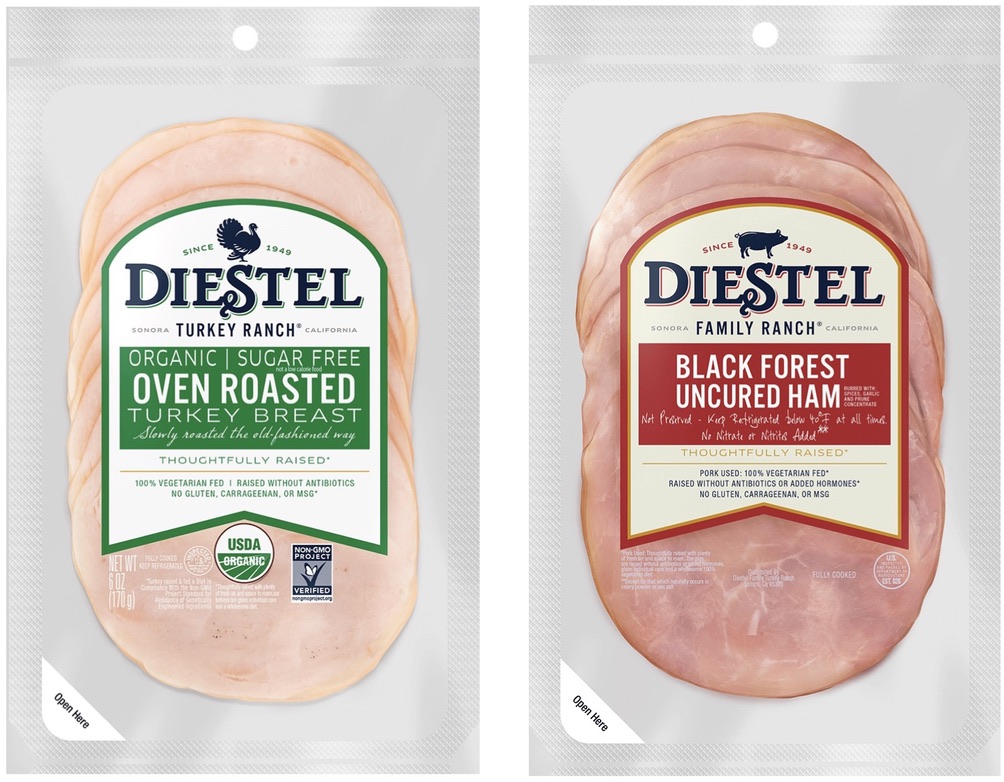
Back in 1949, Jack Diestel founded the Diestel Family Ranch based on philosophies and techniques he had learned from his Great Uncle Earnest. The farm remains in the family, maintaining the Diestel commitment to lean, clean, and delicious poultry. Recently Tim and Joan Diestel transitioned the business over to their children Heidi and Jason. The Diestels practice methods of regenerative agriculture and holistic farming to help rebuild the soil and restore biodiversity. Diestel composts its organic waste not only for fertilizer on their farm, but for other commercial farmers and even school gardens as well. They use fresh well water to clean their barns and pipes. They’re able to use less groundwater for farming as they have a membrane water technology system, which eliminates the need to use chemicals. Diestel’s turkey comes in various flavors, such as smoked, oven roasted, and honey roasted. Plus they sell antibiotic free black forest ham.
La Quercia
Herb and Kathy Eckhouse started La Quercia a little over a decade ago to create a premium quality American prosciutto based on what they had learned living for three and a half years in Parma, Italy, where prosciutto originates from. Along with taste, sustainability is a top priority for La Quercia. They source their pork from farmers who treat their animals and land responsibly. The vast majority of their pigs comes from within a 200-mile radius both of both where the animals are raised and the slaughterhouses where they’re processed. Their pork is cured with sea salt from the United States and organic spices when possible. The La Quercia facility uses energy efficient technology and eco-friendly packaging. While La Quercia’s main focus is prosciutto, they also cure salami, pepperoni, and pancetta.
Maestri
Europeans have been enjoying the charcuterie from Maestri for three generations now. Their deli meats come from Italy as well as Spain, France, and Germany. When looking for farmers partner with, simple things like surrounding air and water and what the animals are fed are all important. In 2014, Maestri began offering their specialties to American consumers. Their products range from Italian meats such as prosciutto, salami, coppa, and mortadella to European meats such as chorizo and jamon.
North Country Smokehouse
For over 100 years, North Country Smokehouse has been handcrafting artisanal smoked meats on the same countryside location in Claremont, NH. Since the beginning, its promise has been to sell only the highest quality cuts of meat. Their livestock is raised by their parent company duBreton, a vertically integrated network of over 400 family-owned farms. North Country values extraordinary flavor, premium ingredients, humanely raised livestock, and land which is well maintained. All of their meats are USDA Organic and Certified Humane® Raised & Handled. All of their products are free of antibiotics, added growth hormones, synthetic chemicals, fillers, and dyes. North Country’s cold cuts are smoked ham, black forest ham, and roasted turkey.
Old World Naturals
Old World Naturals is a collection launched by a fourth generation family in the deli meat business. Old World is proud to now be sourcing its meats from sustainable farms. They’re currently looking at new ways to support sustainability and regenerative agriculture on a larger scale. In terms of their current practices, they use 100% grass fed beef for their roast beef, corned beef, and pastrami. Old World Naturals’ other cold cuts are made with antibiotic free turkey and nitrate free ham.
Organic Nuna
Jeff Lichtenstein, founder of Organic Nuna, is the 4th generation in his family to work in the food industry. One of Jeff’s earliest memories is eating a deli sandwich at his grandparents’ luncheonette in Bensonhurst. After graduating college, he went to farm biodynamic/organic fruits and vegetables and goat cheese dairy for his father in Moca, Dominican Republic. Shortly after, Jeff created Gourmet Guru, the first natural and organic retail incubator and distributor in New York City. Then he founded UNFI Next, which provides customized experience for selected brands distributed by UNFI. And Jeff founded Organic Nuna, which remains family owned and operated. All of Nuna’s feed and land is certified organic with more roaming space than the industry standards. As Nuna is a Native American word for land, they donate every quarter to Native American foundations dedicated to organic and sustainable farming practices. Nuna’s cold cuts are uncured ham, turkey breast, and chicken breast.
Organic Valley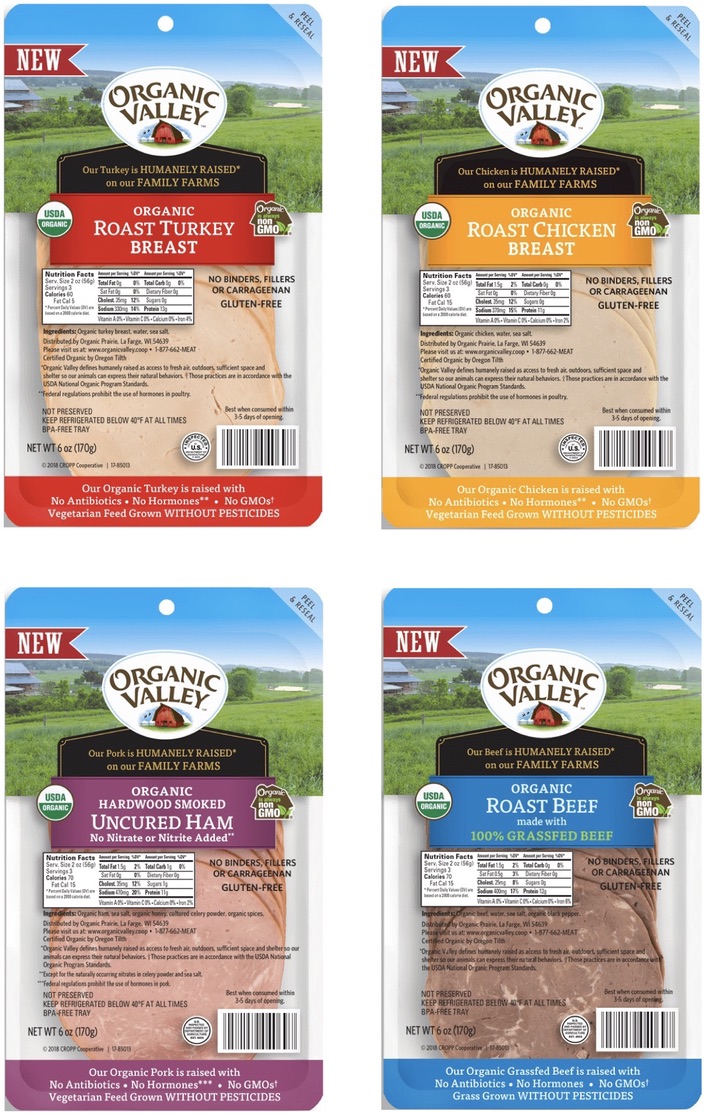
In 1988, seven Wisconsin farmers in the Coulee region were fed up with industrial chemical farming taking over the American agriculture system. They created a cooperative of family farms known as CROPP (Coulee Region Organic Produce Pool). The coop later became Organic Valley, specializing in organic dairy. In 1996, they moved into the meat industry. They were the first in the industry to ban animal by-products from a cow’s diet. Today, they’re a cooperative of over 2,000 farms in 34 states plus Canada and Australia. Organic Valley’s deli slices consist of 100% grass fed roast beef and organic pepperoni, ham, chicken breast, and turkey breast.
Three Little Pigs 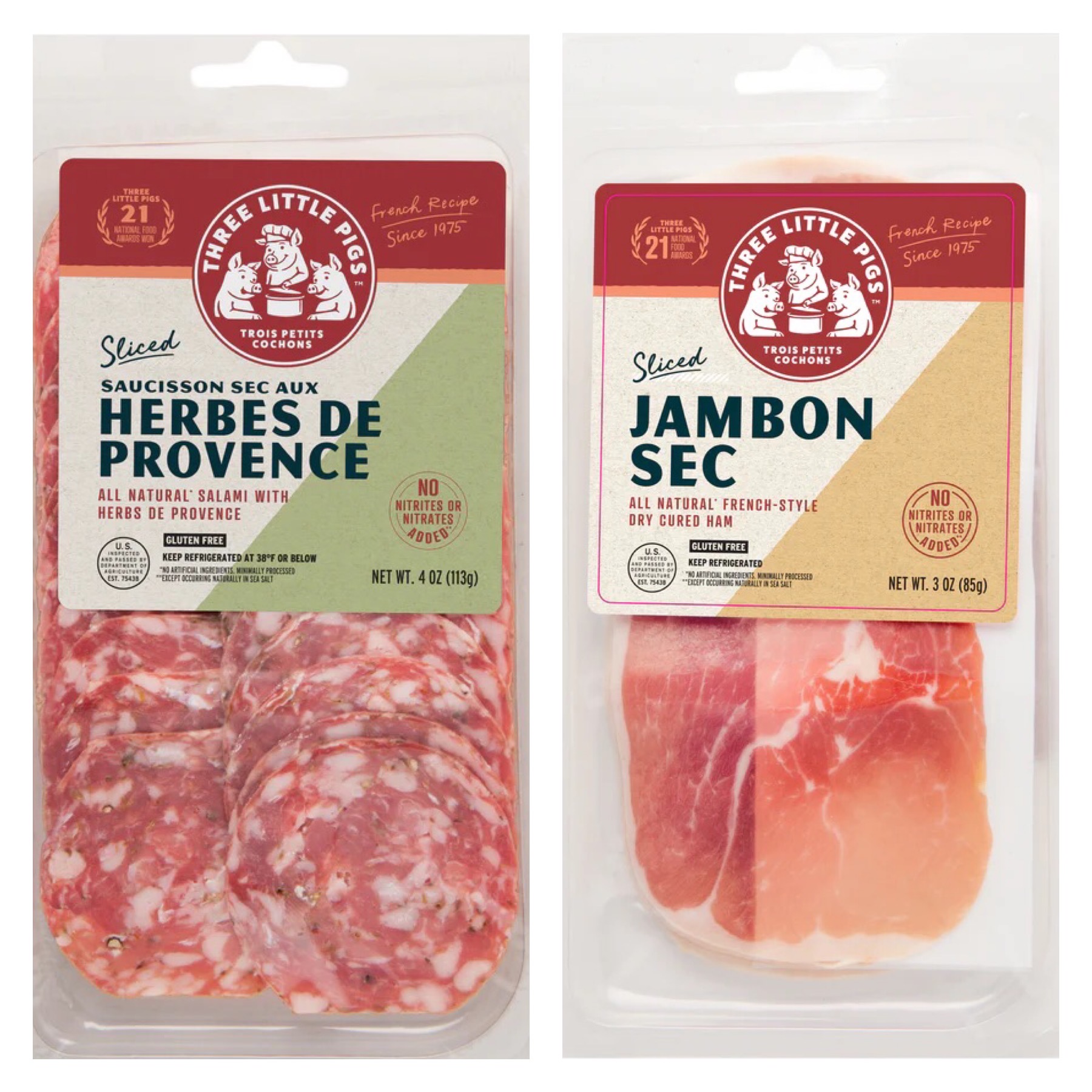
Three Little Pigs was founded in 1975 as a small Greenwich Villiage deli specializing in charcuterie by two French chefs who met while traveling to Africa. At this time, French home cooking was still a new concept in the United States. After Three Little Pigs received excellents reviews by culinary icons such as James Beard, Mimi Sheraton, and Craig Claiborne; their business thrived and soon won awards from the Speciality Foods Association. They then decided to close their deli in order to focus on production of selling their foods across the country. Three Little Pigs’ cured meats consists of salami, chorizo, and jambon de Paris.
True Story Foods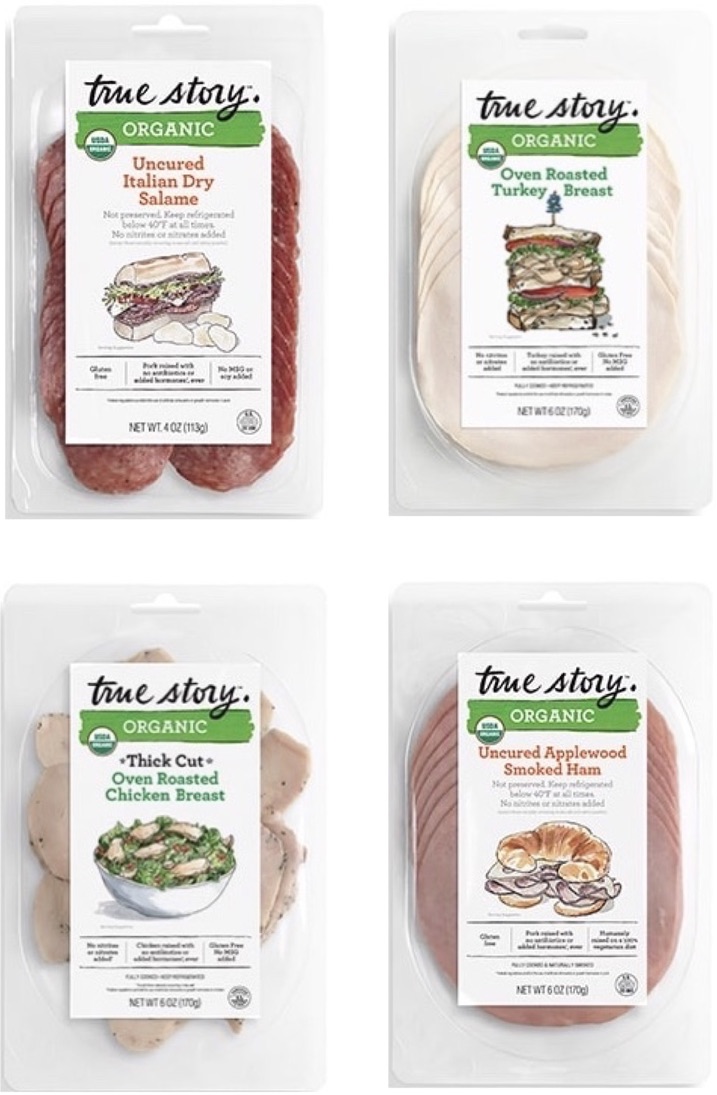
The people running True Story are third-generation food producers who have visited farms throughout America and Europe. Their methods for making their products go back to the way their fathers and grandfathers did things. True Story says their mission extends way beyond putting food on people’s plates by running a business which supports farmers, producers, and growers so we have a sustainable world for the future generations. True Story Foods’ line of cleaner deli meats includes organic pepperoni, applewood smoked ham, chicken breast, and turkey breast.
Volpi Foods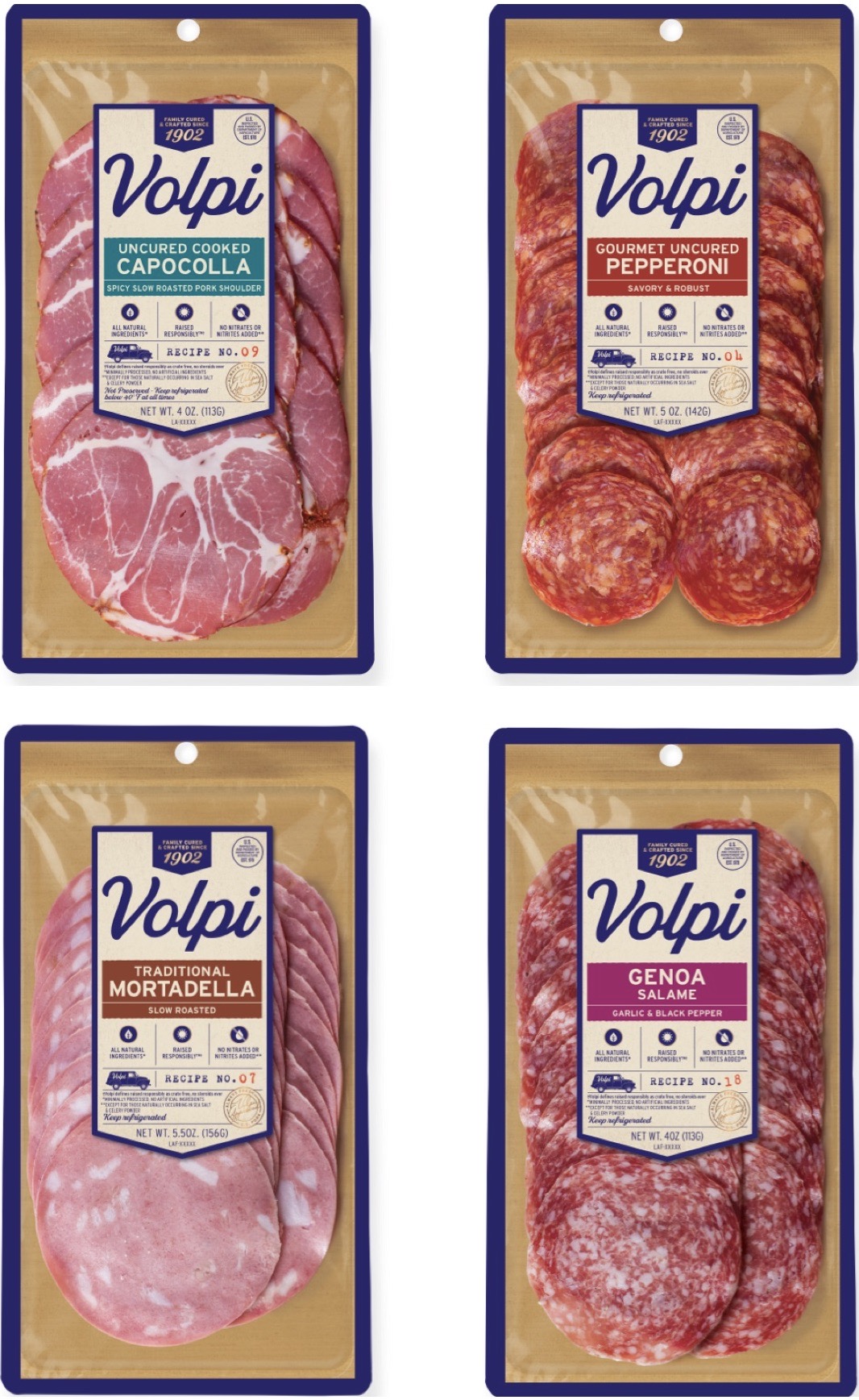
Volpi Foods‘ origins are on a hot summer night in 1899 when John Volpi arrived in the United States from Milan, Italy. Coming to America, he brought along the centuries old tradition of dry-curing meats overseas and bringing them to the U.S. midwest. Four generations later, the Volpi family continues the tradition of making the products by hand. And keeping with the promise of quality, Volpi has created its Raised Responsibly™ program. Practices of this program include comprehensive animal care from birth to harvest; herds with agricultural biodiversity; no gestation crates, steroids, or growth promotants; humane harvesting; third party animal welfare audits; and transportation audits. Volpi has a wide assortment of deli meats, including prosciutto, capicola, coppa, pancetta, salami, pepperoni, chorizo, and mortadella.
Zoe’s Meats
Co-founder of Zoe’s Meats, George Gavros and Charlie Hertz, first met while playing volleyball at the beach. They immediately became friends as they were both working in the food industry. They then began brainstorming ideas for a business they could form together and came up with an artisan meat company. They wanted to provide chefs with access to ingredients which were so good that the chefs didn’t have to make the ingredients from scratch in their restaurants. George named the business after his youngest daughter. Now Zoe’s is also focused on providing their meats to home cooks. Among their sliced meats are salami, pepperoni, prosciutto, ham, roast beef, chicken breast, and turkey breast.


